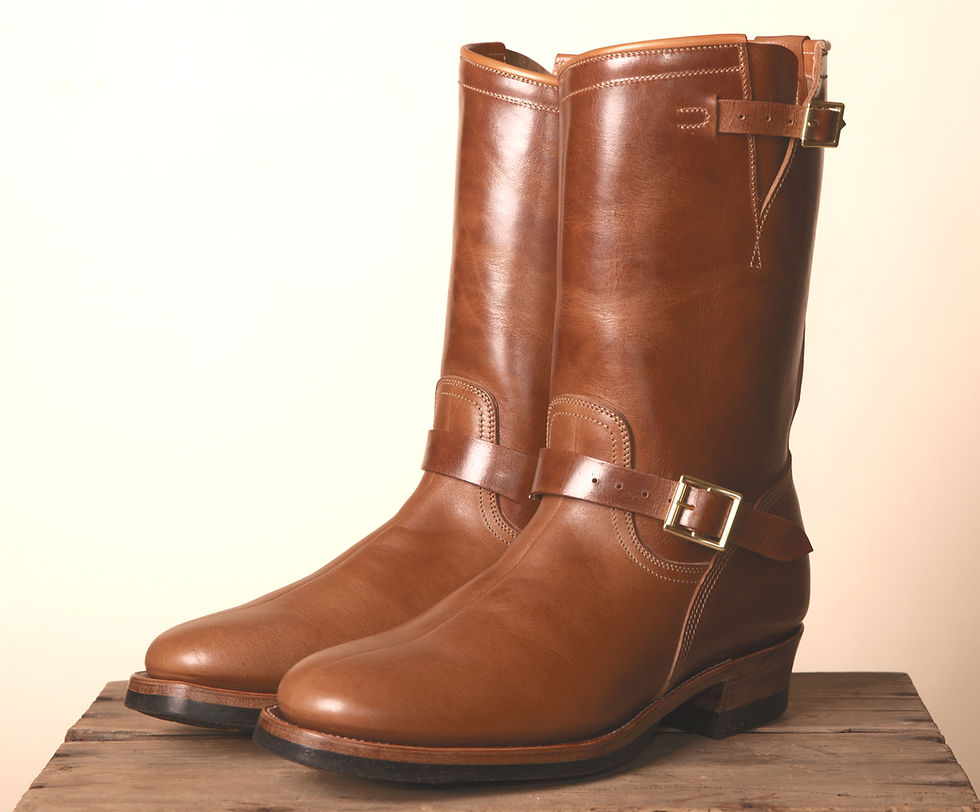Writing the Next Chapter of a Hundred-Year Legacy
- Editorial Staff

- Sep 10, 2025
- 3 min read
Musgrave Pencil company's journey from Shelbyville’s Cedar Mills to beloved heritage brand

In the heart of Shelbyville, Tennessee—once proudly dubbed The Pencil City—the Musgrave Pencil Company has been crafting writing instruments for over a century. Founded in 1916, it is now one of the last remaining domestic pencil manufacturers in the United States, producing high-quality pencils for education, office use, art, and custom branding.
For Scott Johnson, Musgrave’s current President, that heritage is more than a legacy, it’s a responsibility. “Our legacy is rooted in the belief that doing things the right way matters,” Johnson says. “Taking care of your people, investing in your hometown, and standing by your values even when it’s not the easy path.”
From Cedar Slats to Finished Pencils
The Musgrave story began with James Raford Musgrave, who operated a lumber mill supplying eastern red cedar slats to German pencil manufacturers. After World War I disrupted trade, the company made a pivotal exchange from cedar slats for pencil-making machinery; they began producing pencils in Shelbyville. “That’s when pencil production was born here,” Johnson explains. “Over time, Shelbyville became a national pencil-making hub and earned the nickname ‘The Pencil City.’”
The early years were far from easy. The Great Depression brought economic strain and claimed the life of the founder in 1939. Yet the company endured, refusing to sell to outside interests, even as competitors did. According to Johnson the decision to stay family-owned has gotten them through many difficult moments.

For over 100 years, Musgrave has remained family-owned and operated. Today, Johnson blends deep manufacturing expertise with a forward-thinking approach to growth, expanding the company’s reach into e-commerce, retail, and specialty markets. In an industry now dominated by imports, Musgrave has carved out its niche by offering products that overseas competitors can’t easily replicate—customized, high-quality, American-made pencils.
“Our culture is one of ‘we can do that,’” Johnson says. “That attitude has allowed us to survive and thrive, even when the industry changed dramatically.”
A Community Mainstay
Musgrave’s role in Shelbyville goes beyond manufacturing. Many employees have worked there for decades, with multiple generations often represented on the factory floor. The company actively supports local schools, non-profits, and civic organizations, and it remains a visible presence at community events. Holiday gatherings bring the entire company together—a tradition that reinforces the shared sense of purpose behind the brand.
Adds Johnson: “Our family has been committed to Shelbyville and to preserving American manufacturing since the turn of the century. We lead by asking what’s right for the people who work here and our community.”
Despite advances in technology, the fundamental process of making a pencil remains unchanged. “The neat thing about a pencil is, not that much has changed in how it’s made. We’ve added modern systems and efficiency, but the core craftsmanship is the same.”
While many might assume digital tools have diminished the need for pencils, Johnson sees the opposite. “Pencils tie us to creativity in prose and art,” he says. “They give us balance in an analog world.” That philosophy drives Musgrave’s dedication to quality—from carefully sourced U.S. wood to precise manufacturing standards that customers can feel in every sharpened point.

The Story Behind Every Pencil
Each Musgrave pencil is infused with values that go beyond its materials: a commitment to American manufacturing, customer care, and a sense of personal connection between maker and user.
“We happily wonder where each pencil will end up,” Johnson quips. “A child’s first alphabet? An artist’s sketch? A business idea scribbled on a napkin? There’s something special in knowing it will be part of someone’s story.”
This connection fuels the nostalgia many feel toward pencils—a reminder of learning to write, sketching ideas, or simply doodling during a quiet moment. The company believes that pencils connect people to strong life memories; they have the ability to ground us in simplicity and balance, apart from our fast-paced world.
Holding the Line on American Manufacturing
Musgrave’s choice to keep production in Shelbyville is both practical and symbolic. It supports local jobs, sustains traditional manufacturing skills, and preserves a sense of place.
“It means we haven’t given up,” Johnson says. “We’ve accepted the challenges of taking on the import market while staying committed to quality and value.” That mission has made Musgrave a recognized American heritage brand—one defined by grit, determination, focus, and perseverance.
Under Johnson’s leadership, Musgrave continues to innovate. The company recently introduced a line of natural-finish coloring pencils designed for both educational and household use. It’s also working on several new products for clients, but most still under wraps.
And as younger consumers discover Musgrave online, Johnson sees a promising shift. “It’s amazing to see their excitement about what we do here. That’s translated into growing loyalty and enthusiasm for the brand.”
***



Comments